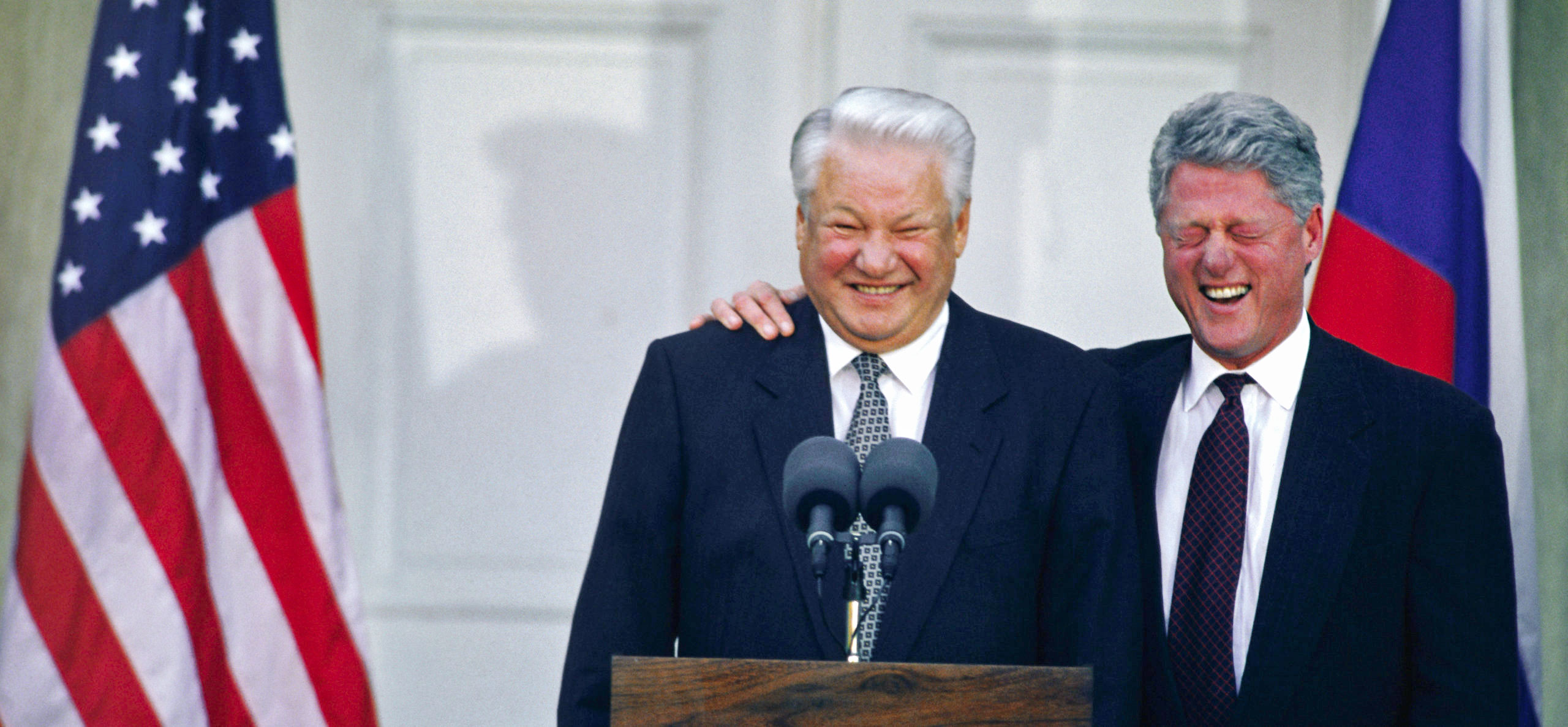Bill Clinton might have saved those who read his self-justifying Atlantic magazine essay defending his decision to expand NATO a lot of time by simply writing the following: “The late Madeleine Albright said it was a good idea, so I did it.”
Clinton’s essay has all the hallmarks of what we’ve come to expect from a Clinton Family production: self-exoneration, selective memory, and a blatant disregard for the audience’s intelligence.
Further still, there are a number of faulty assumptions which underlie Mr. Clinton’s historic recreation of the 1990s. The former president writes:
Here Clinton is espousing a version of the ‘Democratic Peace Theory’, the idea, in short, that democracies rarely engage in conflict with other democracies. The problem with the theory is that it has little bearing on how states actually act. After all, it was the revanchist Putin who was the first foreign leader to call and offer support to George W Bush on 9/11; it was Putin’s Russia who worked to rid Syria of its vast stockpiles of chemical weapons in 2013; it was the US, not Putin’s Russia, that gutted the bilateral nuclear arms control regime over the past 20 years. Whether Russia was a “democracy” or not is irrelevant to these issues.
The narrative Clinton constructs here also conveniently sets things up in his favour: if NATO expands and Russia peacefully acquiesces, then it will be seen as a success and expansion is justified. If NATO expands and Russia reacts in a threatening way (as it is now), NATO expansion can also be justified. Heads I win, tails you lose.
After briefly noting that there was quite a lot of opposition among serious scholars of Russia such as George F. Kennan, Mr. Clinton goes on to note that:
This is true but irrelevant. As my late friend and mentor Stephen F. Cohen liked to say, “NATO isn’t the AARP, it’s a military alliance, you can’t just sign up for it because you feel like it.” So what then was Mr. Clinton’s actual motive? Was it, as he assures us, to ensure the democratisation of Eastern Europe? Was it to strengthen the NATO alliance should Russia turn its back on democracy? No: the real motive was, well, votes.
Here is former US ambassador to the USSR (1987-1991) Jack F. Matlock in an interview earlier this year with the Middlebury Institute of International Studies:
As we have come to expect of decisions the Clintons have made over the 30 years they have been on the national political scene, it comes down to self, more than national, interest. The decision to expand NATO was guided as much by Mr. Clinton’s drive to win the 1996 election as by lofty notions of US national security — he left that part out of his Atlantic essay.










Join the discussion
Join like minded readers that support our journalism by becoming a paid subscriber
To join the discussion in the comments, become a paid subscriber.
Join like minded readers that support our journalism, read unlimited articles and enjoy other subscriber-only benefits.
Subscribe